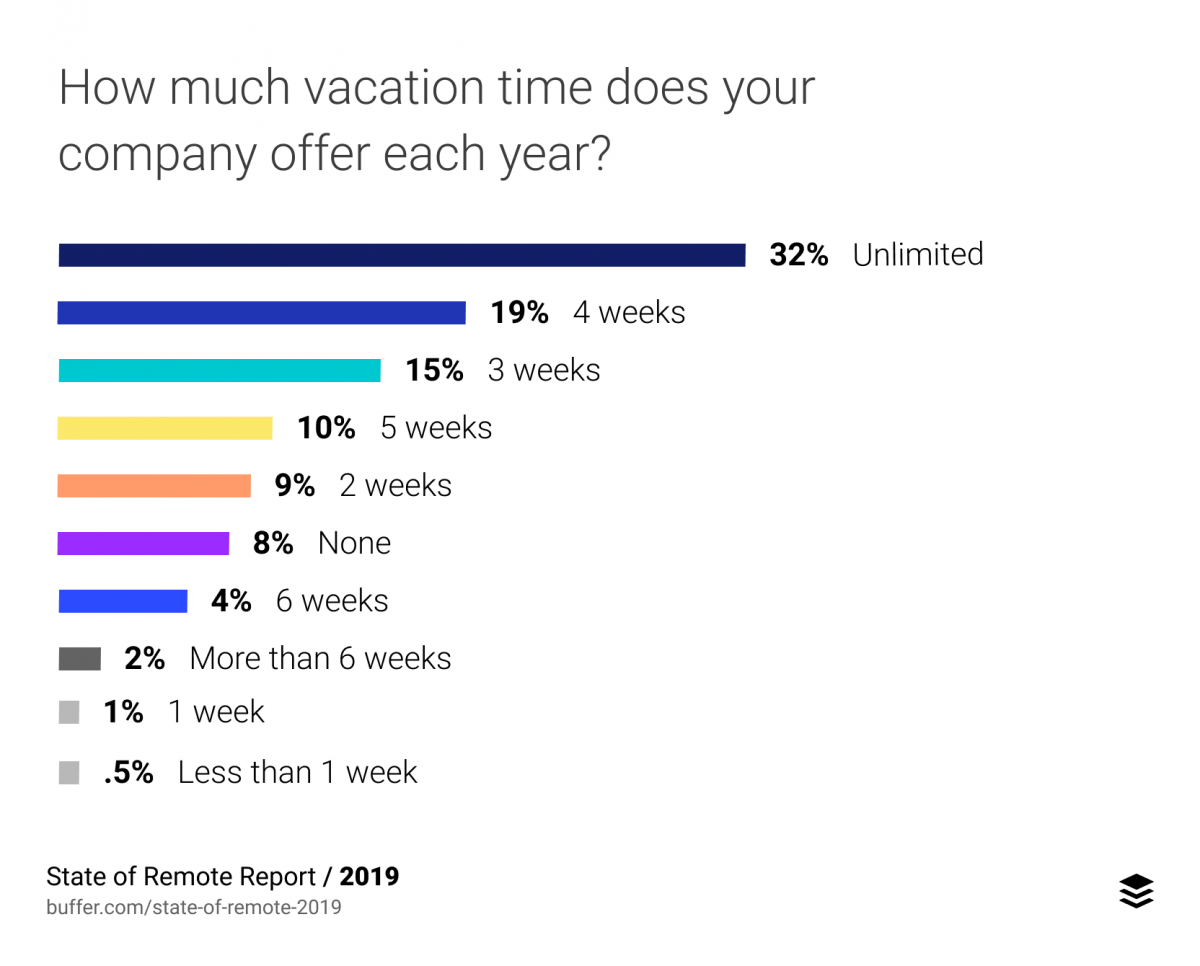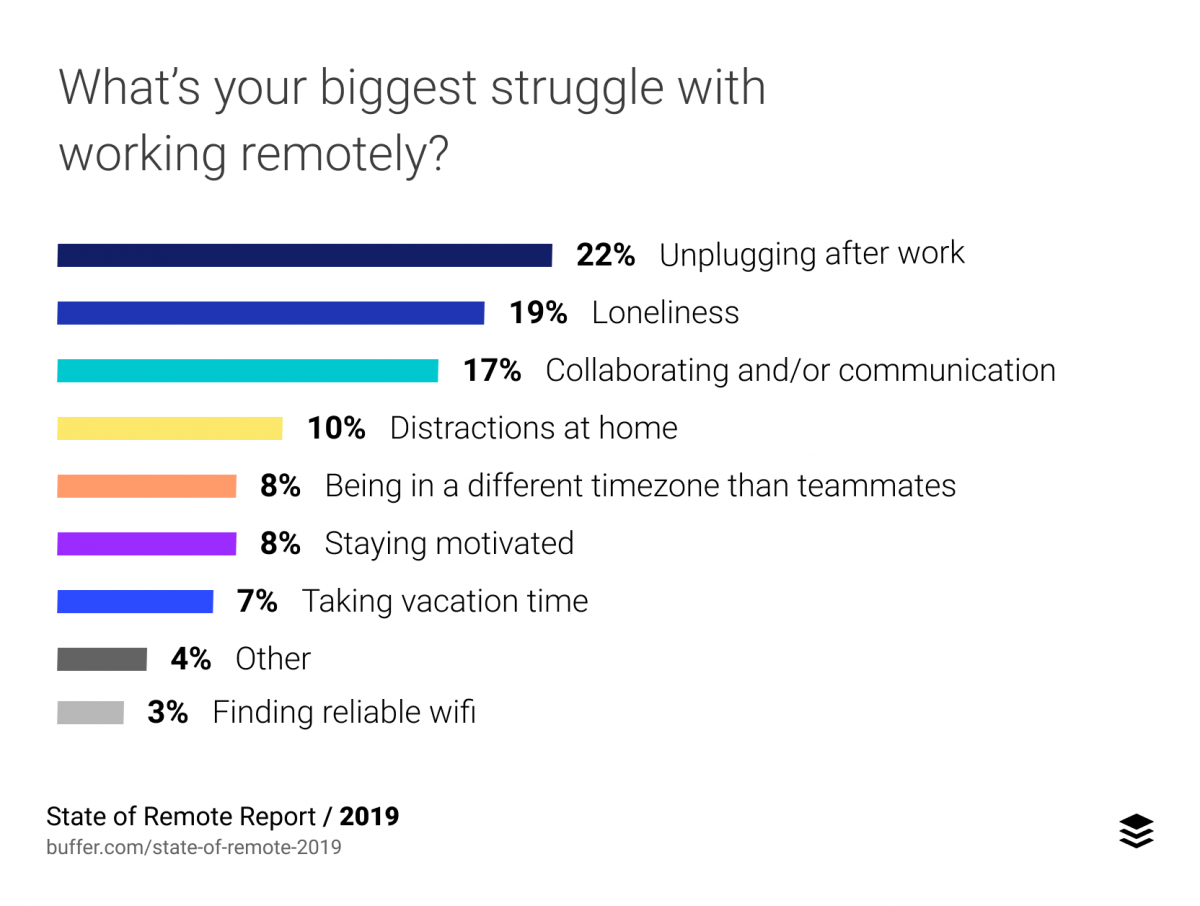Data from Gallup shows that of those who don’t work remotely, one in three would literally switch jobs if they had the chance to join the remote revolution and work independently. It’s easy to see why, right? The allure of flexibility is real.
Do you know what else is real? The actual work.
Those on the outside may believe that working remotely is all about logging in part-time from your couch and having the freedom to get those Insta-worthy shots, whether from the beach or a slew of trendy coffee shops. They may think remote work is a paid, continuous quest for a photogenic latte or a constant vacation.
They couldn’t be more wrong.
In fact, Buffer’s State of Remote Work 2019 study found that, although 32 percent of remote respondents reported having unlimited vacation time, 22 percent took only two weeks (and 5 percent took none). (See Figure 1.)

Figure 1. (Source: Buffer)
A Price—and a Promise
As a remote, I know the price we pay for the opportunity to live and work wherever we are inspired is steep. Because we know it’s just that—an opportunity—we make sacrifices to keep it. These sacrifices mean we work longer and harder than we ever would in a cubicle, and the data proves it. It’s by design: we work at all hours of the night to be in sync with the time zones of our companies, our families, or our clients. Every day, the work we produce is our business card. Our deliverables—whether composed of content, code, or anything in between—help deliver us to the next place. The next level. The next opportunity to show what we can do.
Need proof? Recently, when trying to schedule a time to collaborate with another remote, I got the following message: “It’s 9:28 here, but I’m generally up until about 2. I don’t go out except Saturday night and would make myself available ANYTIME.” Yes, ANYTIME. That’s the commitment I am talking about. For most of us who embrace this lifestyle, we don’t celebrate it simply because that’s how we live. It’s what we do.
I’m highly aware that there’s a flip side here, too. As published in that same Buffer study I referenced above, this inability to unplug was also noted as the biggest struggle remote workers face, followed by loneliness as a close second. (See Figure 2). Both of these challenges are real. The good news? As a remote, both concerns—and others on the chart—can be alleviated by mixing up your routine to include coworking spaces. (For example, I recently wrote about How to Enhance Your Remote Life with a Workspace Experience.)

Figure 2. (Source: Buffer)
The Bottom Line
We should not feel guilty about our status as location-independent professionals, because we earn that status every day. For those one out of three people who would switch employers to join our ranks, I offer this advice: Make sure you’re ready to work harder than you ever have. For the 63 percent of employers who have some level of remote team members (or those considering making the wise choice to join them), I offer this advice: A good remote is an investment in your business. Find them, support them—and everybody wins.


